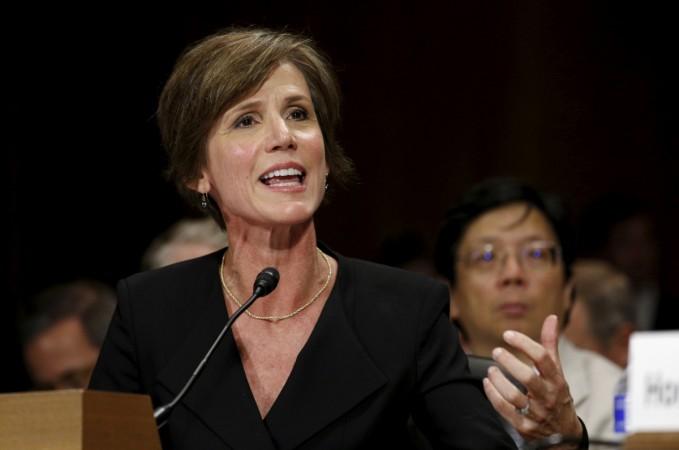
US President Donald Trump has fired acting Attorney General Sally Yates because she defied the travel ban he had imposed on citizens of seven countries, and had thus "betrayed the Department of Justice." Yates had, earlier in a letter, said the US Department of Justice (DoJ) would not defend the policies the billionaire business tycoon-turned-politician would bring.
Also read: Donald Trump's immigration ban: Here's how US tech industry leaders reacted
What Yates had said
Yates, who had been appointed deputy attorney general during the Obama administration and has since become the acting attorney general, had said in a letter to lawyers in the DoJ about the ban on immigrants from seven Muslim-majority countries: "At present, I am not convinced that the defence of the Executive Order is consistent with these responsibilities nor am I convinced that the Executive Order is lawful."
She went on to add: "Consequently, for as long as I am the Acting Attorney General, the Department of Justice will not present arguments in defence of the Executive Order, unless and until I become convinced that it is appropriate to do so."
Trump's firing statement
Trump fired Yates on Monday, local time, saying in a statement: "The acting Attorney General, Sally Yates, has betrayed the Department of Justice by refusing to enforce a legal order designed to protect the citizens of the United States. This order was approved as to form and legality by the Department of Justice Office of Legal Counsel. Yates is an Obama Administration appointee who is weak on borders and very weak on illegal immigration."
The statement went on to add: "Tonight, President Trump relieved Yates of her duties and subsequently named Dana Boente, US Attorney for the Eastern District of Virginia, to serve as Acting Attorney General until Senator Jeff Sessions is finally confirmed by the Senate, where he is being wrongly held up by Democrat senators for strictly political reasons."
Chillingly, it also said: "It is time to get serious about protecting our country. Calling for tougher vetting for individuals travelling from seven dangerous places is not extreme. It is reasonable and necessary to protect our country."









